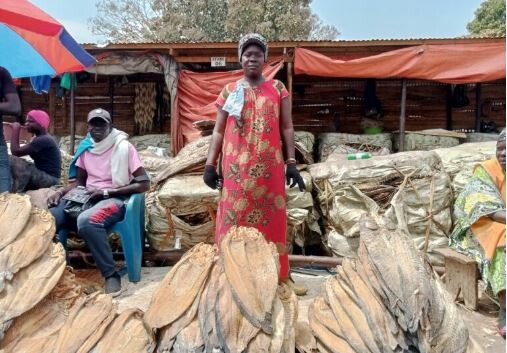Ugandan authorities have jailed four truck drivers for two months and imposed heavy fines on South Sudanese fish traders, escalating tensions over trade protocols within the East African Community (EAC).
Last week, six trucks loaded with salted fish from South Sudan and destined for the Democratic Republic of Congo (DRC) were detained at the border for failing to comply with a newly implemented set of regulations mandating specific packaging and processing standards for fish exports to EAC member states.
The traders however contend that they have not been well educated about the new requirements.
Gaar Amol, a prominent figure in the South Sudanese fish trade industry, expressed his grievances and told Radio Tamazuj that South Sudanese fish traders were fined an exorbitant sum of 36 million Uganda Shillings which is equivalent to USD 9,800.
“The drivers of the first two trucks were each sentenced to two months in jail and fined 500,000 Uganda Shillings plus other costs totaling 8 million Uganda Shillings. The two drivers are now in jail with other people, including one Ugandan and a South Sudanese man” he said. “About the other four trucks, the Ugandan authorities told us that the case would be heard in court on 14 May but we decided to sit down with them and negotiate because our fish was getting damaged. They fined us 28 million Uganda Shillings.”
Amol added: “So when you add all the money we paid in fines, it totals to 36 million Uganda Shillings which is an equivalent of USD 9,800.”
He criticized the Ugandan government’s decision as unjust and warned that it could undermine the principles of free trade in the EAC nations.
However, Dut Diing, the chairperson of the Fish Producers Trade Union in South Sudan, contradicted Amol and argued that the South Sudanese traders deserve the penalties, saying that they disregarded the proper packaging standards established by the EAC.
“The Ugandan authorities are being reasonable because they gave us a warning last year but our traders here do not listen,” he stated. “So, we have nothing to do. As a country, we must organize ourselves.”
The incident has sparked a debate on the enforcement of trade regulations and the balance between maintaining standards and facilitating free trade within the region.



